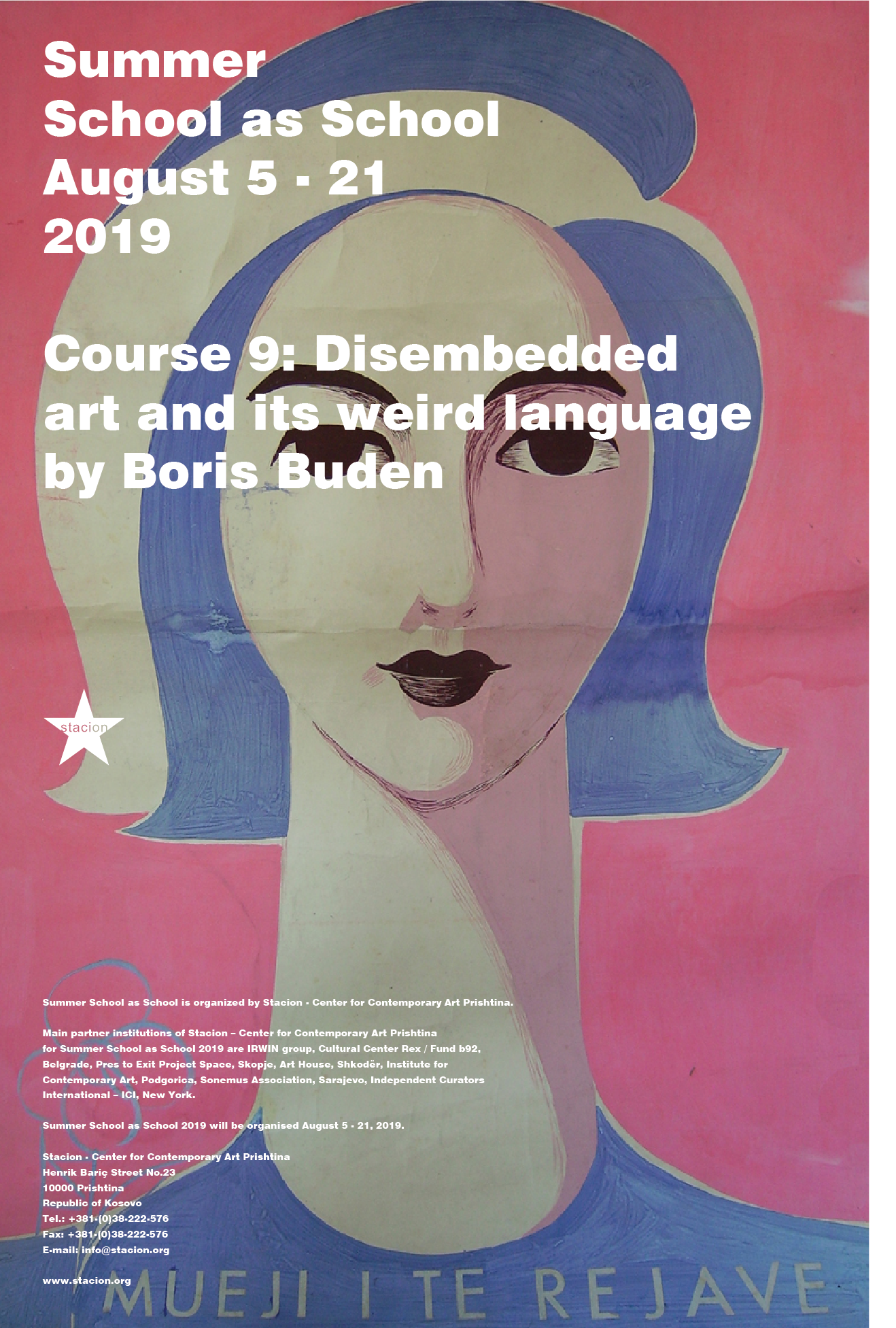
Course 9: Disembedded Art and its Weird Language
by Boris Buden
12 – 15 August, 2019
Course Description
Many of the questions raised around the Rule, Levine’s thesis on “International Art English” and the heated public debate it sparked a few years ago have been left unanswered. Just to mention a few: why shall a global art system, after having been finally disembedded from any particular society or nation state, once again speak one single, “properly” standardized and institutionally controlled language? What sort of linguistic practice and corresponding social relations could replace the deteriorating monolinguality of today’s contemporary art? Finally, what are the social and political consequences of this linguistic, artistic and cultural transformation? Any meaningful answer to these questions must go beyond the false alternative of monolinguality versus multilinguality. In other words, it must address the praxis of translation in both the way art speaks to itself and the world and the way it rearticulates itself in its social and political praxis.
Biography
Boris Buden is a writer, cultural critic and translator. He studied philosophy in Zagreb and received his Ph.D. in Cultural Theory from Humboldt University, Berlin. In the 1990s he was founder and editor of the Zagreb-based magazine and publishing house Arkzin. His essays and articles cover topics related to philosophy, politics, culture and art criticism. Among his Croatian translations are some of the most important works of Sigmund Freud. He has co-edited several books and is author of Der Schacht von Babel: Ist Kultur übersetzbar? [The Pit of Babel: Is Culture Translatable?] (2004); Übersetzung: Das Versprechen eines Begriffs [Translation: Promises of a Concept] (2008) (with Stefan Nowotny); Zone des Übergangs: Vom Ende des Postkommunismus [Zone of Transition: On the End of Post-communism] (2009); among others. Buden is a permanent fellow at the European Institute of Progressive Cultural Policies, Vienna. He lives and works in Berlin.
Participation
10 participants will be selected to participate in this course. Eligible participants must read the Terms, fill out the application form, upload the required documents and submit the application form. Incomplete applications will not be considered.
Scholarships are available for participants from Kosovo.
A limited number of scholarships, that cover the participation fee, are available for international participants.